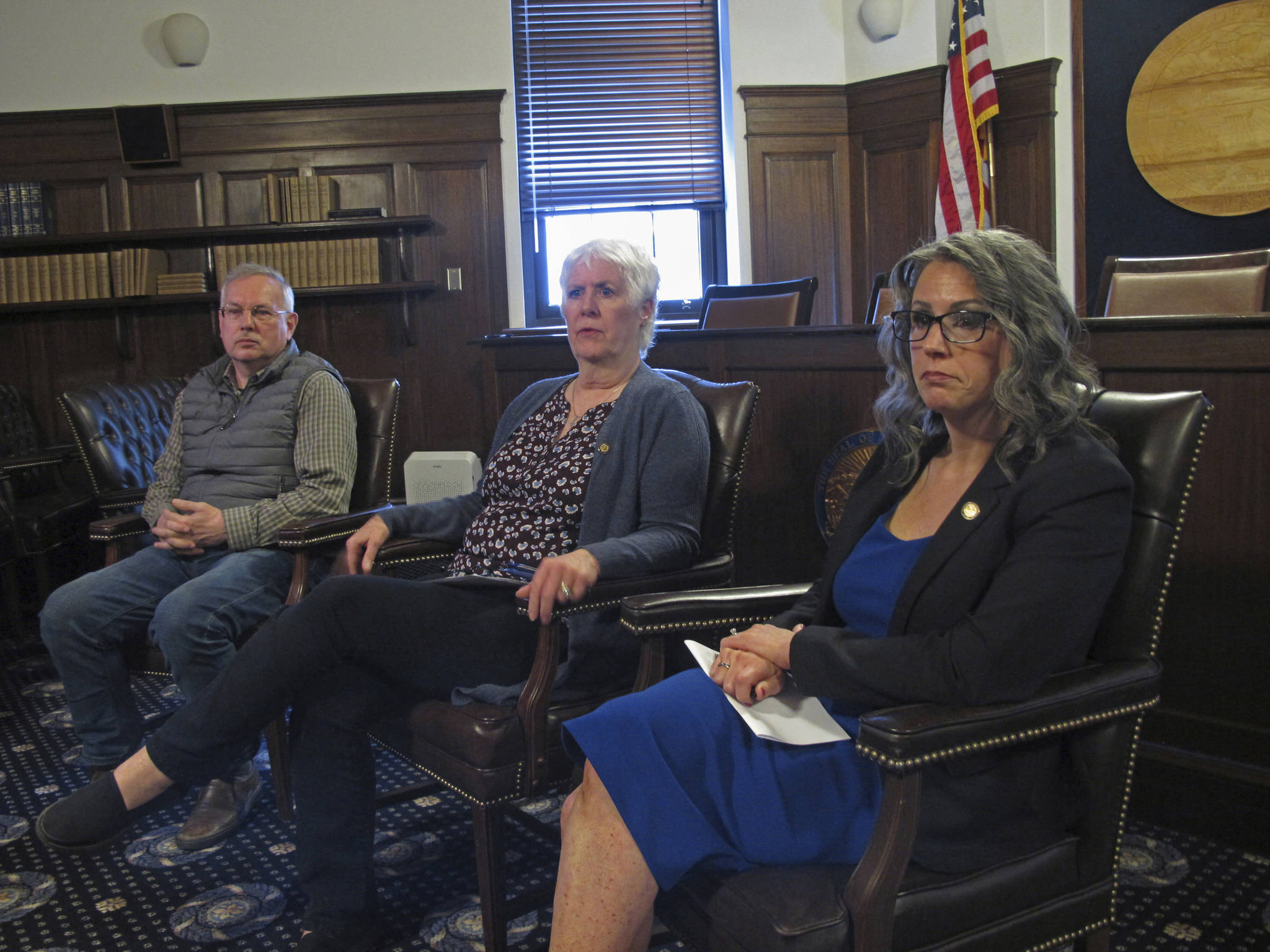The first special session of the Alaska State Legislature came to an end Friday, but another is scheduled to start Wednesday. The next session comes after Gov. Mike Dunleavy sent what he called a “defective”budget back to lawmakers and notices warning of potential unemployment due to a shutdown to state employees.
The House of Representatives officially gaveled out at about 3 p.m. Friday and the governor’s official proclamation was issued shortly after. The next special session will begin 10 a.m. on Wednesday, June 23.
Both the Senate and the House of Representatives approved a state budget bill this week, but House members failed to get the votes needed for a clause that provides a date for when the law in effect. Without the effective date clause, Dunleavy said the Alaska State Constitution requires laws go into effect 90 days after they’re passed. That would put the budget’s start date in September, Dunleavy said Thursday at a news conference, leaving the state with no operating funds beginning July 1, the start of Alaska’s fiscal year.
But lawmakers disagree, saying there’s plenty of precedent to show a governor has a number of options available to them to avoid this kind of scenario. Meeting with reporters Friday afternoon, House Speaker Louise Stutes, R-Kodiak; House Finance Committee co-chair Rep. Kelly Merrick, R-Eagle River; and Rep. Bryce Edgmon, I-Dillingham; said it was possible for the governor to take a short-term loan and there were retroactivity clauses within the bill dealing with this issue.
[Dunleavy calls on lawmakers to solve budget conflict]
The House Majority Coalition cited a legal memo from Legislative Legal Director Megan Wallace citing past instances in which the Legislature had faced the same issue. But in a meeting with reporters Friday, Deputy Attorney General Cori Mills said the cases cited in the memo were not comparable and the constitutional language was clear that without a vote for an effective date bills must wait 90 days before becoming law.
But coalition caucus members said in light of precedent, the governor’s move appeared more political than legal.
“The governor is essentially pitting a government shutdown against a bigger (Permanent Fund Dividend),” Edgmon said. “The governor has drawn a very bright line in the sand.”
Budget negotiations collapsed earlier this week after the bicameral conference committee tasked with negotiating the final version of the budget swapped funding sources late in negotiations. Committee members split fund sources for the PFD so roughly half the payment came from funds with the Constitutional Budget Reserve, which requires a three-quarter vote in both bodies.
Lawmakers, mainly Republicans but some Democrats as well, decried the move as bullying and while both the House and Senate passed the state’s operating budget, both bodies failed the CBR vote and the House failed the effective date vote.
Several mostly Republican lawmakers have advocated strongly for a larger PFD and though many, including the governor, have stepped away from the demand the state follow a statutory formula from the 1980s, opponents say the new proposals aren’t realistic.
Dunleavy has put forward three constitutional amendments he says will put the state on a sustainable fiscal path, but lawmakers have said the accompanying financial projections are too optimistic. The governor’s plan also relies on the state finding new revenues but the administration hasn’t put forward any concrete proposals.
The budget passed by the Senate had a $2,300 PFD but required lawmakers to surpass their own limit on how much money they could draw from the Earnings Reserve Account. There are lawmakers deeply opposed to overdrawing the ERA in both parties and bodies but there are some who are willing to do that only if a comprehensive fiscal solution is assured.
But that solution hasn’t materialized, legislative leadership has said.
“The problem is if we agree to overdraw the ERA prior to the sustainable solution this will not be a one-time overdraw, and you will be able to look at your PFD in the rearview mirror,” Stutes said.
Despite meeting regularly with House Minority Leader Cathy Tilton, R-Wasilla, Stutes said it was difficult to pin down exactly what House Republicans were asking for. Tilton told Stutes there were some members of her caucus who favored the statutory PFD, others who favored the $2,300 and others opposed to overdrawing the ERA. Some of those positions are contradictory.
“My response has always been, ‘Help me out here Cathy, what it is you want?’ and I haven’t been able to get an answer,” Stutes said.
Tilton did not respond to request for comment Friday.
Tilton and other members of the minority say their concerns have been ignored and aren’t reflected in the budget.
“Every year, the minority is aggrieved,” Edgmon said. “They don’t get to have a full seat at the table and that’s the way it works in a democracy.”
• Contact reporter Peter Segall at psegall@juneauempire.com. Follow him on Twitter at @SegallJnuEmpire.

